What defines a liberal arts education, and what is distinctive about a Georgetown liberal arts education?
As I settle into my first semester as dean of the College of Arts & Sciences, I find myself regularly pondering these questions. To the general question, a liberal arts education is fundamentally a process of discovery. For discovery to occur, this process must take place in an environment where we do not simply accept views different from our own, but rather actively encourage dialogue among alternative perspectives. I urge you to embrace the discomfort that comes with confronting viewpoints different from your own. You will emerge from that confrontation as a more thoughtful and more resilient person.
A journey through the liberal arts begins with a core curriculum that introduces students to alternative ways of knowing and thinking and provides the foundation of their education. Through the arts, humanities and languages, students develop an understanding of how to interpret and express the human condition. Through the social sciences, students discover different ways of explaining the dynamics of society. The natural sciences not only explain the ways that the world around us works, but also introduce students to a rigorous process for discovering the causes and consequences of natural phenomena, while the computational sciences provide us with methods for analyzing and understanding that world.
When this core curriculum succeeds, it allows students to see the connections, tensions and complementarities of different disciplines. Students learn substance while developing ethical positions on challenging issues. They discover alternative ways of addressing the problems that confront us and, in the process, discover themselves — their passions, interests and identities that drive their educational choices beyond the core curriculum. In my own formative education at Colgate University, I recall fondly a first-year seminar that I took on “Nationalism and Music” with Laura Klugherz, a professor of music as well as an accomplished concert violinist. The seminar taught me the power of the arts as a form of political expression and cemented my interest in the study of international politics. Neither would have happened without the interdisciplinary study characteristic of a liberal arts education.
What, then, is distinctive about a Georgetown liberal arts education? Discovery at a research university like Georgetown does not solely take place in the classroom. It also occurs in labs and libraries. Research — the process of uncovering and developing new knowledge — is fundamental to the liberal arts as we enact it at Georgetown. When students work in a lab or examine archival documents with a faculty member, they appreciate more meaningfully how knowledge is derived. As just one example, I have met students who have traveled with professor Sarah Johnson to engage in research on climate change in Antarctica. The experience is profound, contributing meaningfully to professor Johnson’s research while providing students with a firsthand understanding of how scholars study the world.
This active participation leads to another distinctive element of a Georgetown liberal arts education: the process of discernment that Jesuits embrace. For our students, this is an essential part of their formation. As our President Emeritus John J. DeGioia (CAS ’79, GRD ’95) summarized in 2024, discernment allows us to examine our relationships with God through education.
“Look for what brings consolation and trust it. Look for what brings desolation… and study it,” DeGioia said. “This attention will illuminate — will shine a light — on our interior lives and enable us to experience the presence of God in our lives.”
That light shining in a liberal arts education is a product of the challenges students encounter, both the frustrating desolation that we find and the reassuring consolation that strengthens us.
In the College, we foster this dichotomy of desolation and consolation by encouraging students to confront ideas that are unfamiliar and uncomfortable to them. Dialogue among those with different perspectives and life experiences may leave students uncertain about what they thought were core beliefs. The reconciliation of these discordant views is where discovery and discernment meet — where the light goes on, formation occurs and students begin to discover their true passions and beliefs.
A Georgetown liberal arts education is a journey of discovery that takes place in the classroom, the lab, the dormitory and the dining hall. Vigorous disagreements in Harbin that may leave a student with that feeling of desolation can turn into the finding of common ground and consolation over a meal at Leo’s. Liberal arts education involves critiquing existing knowledge and participating in the creation of new knowledge. It is confronting uncomfortable moments that leave one feeling disconcerting desolation, but finding in other moments reassuring consolation. In the end, it is about shining that light on our interior selves through an education that will best prepare our students to address the challenges that lie beyond the front gates. Together, our obligation is to provide the foundation for discovery and discernment that is essential to a Georgetown liberal arts education.
David M. Edelstein is the dean of the College of Arts & Sciences as well as a professor in the School of Foreign Service, department of government and the Center for Security Studies at Georgetown University.


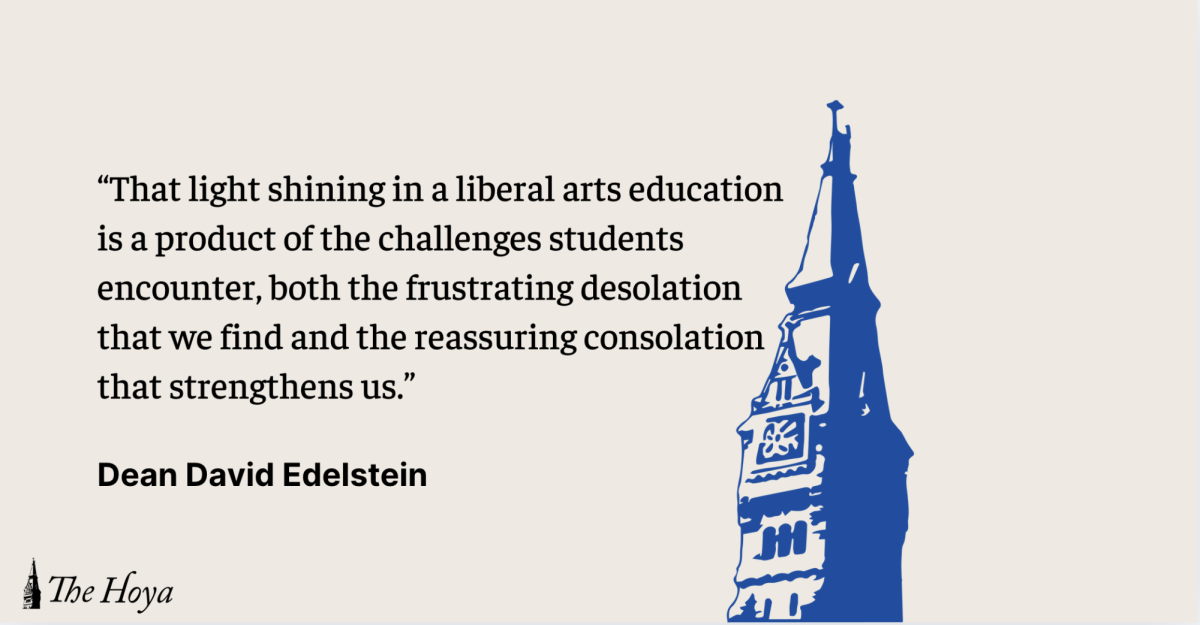
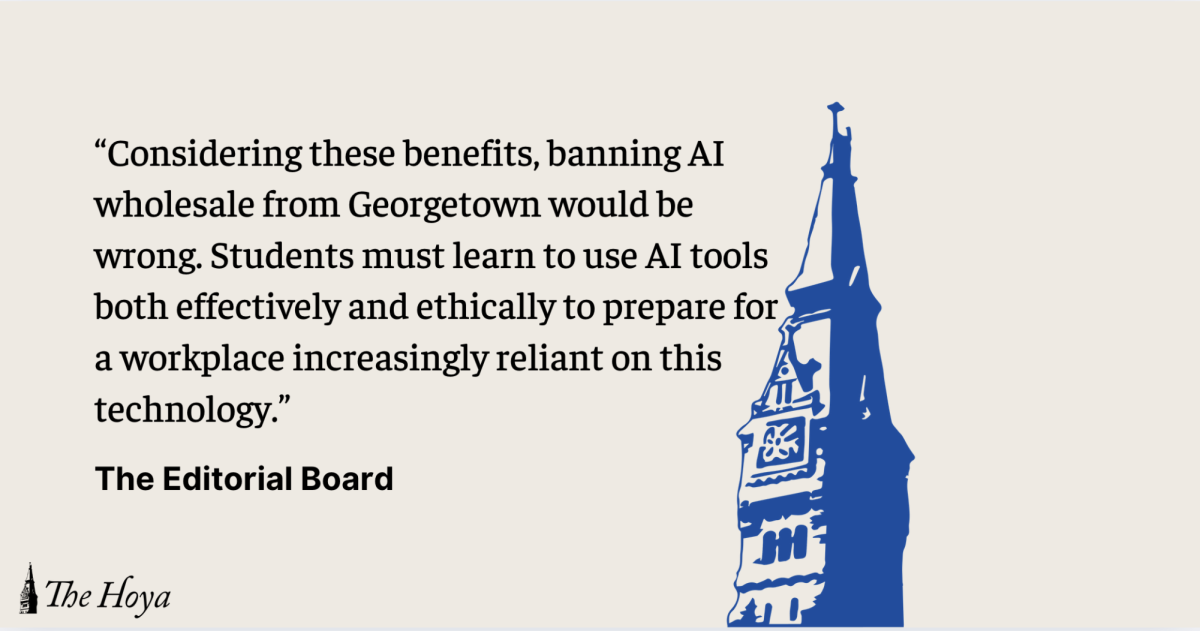
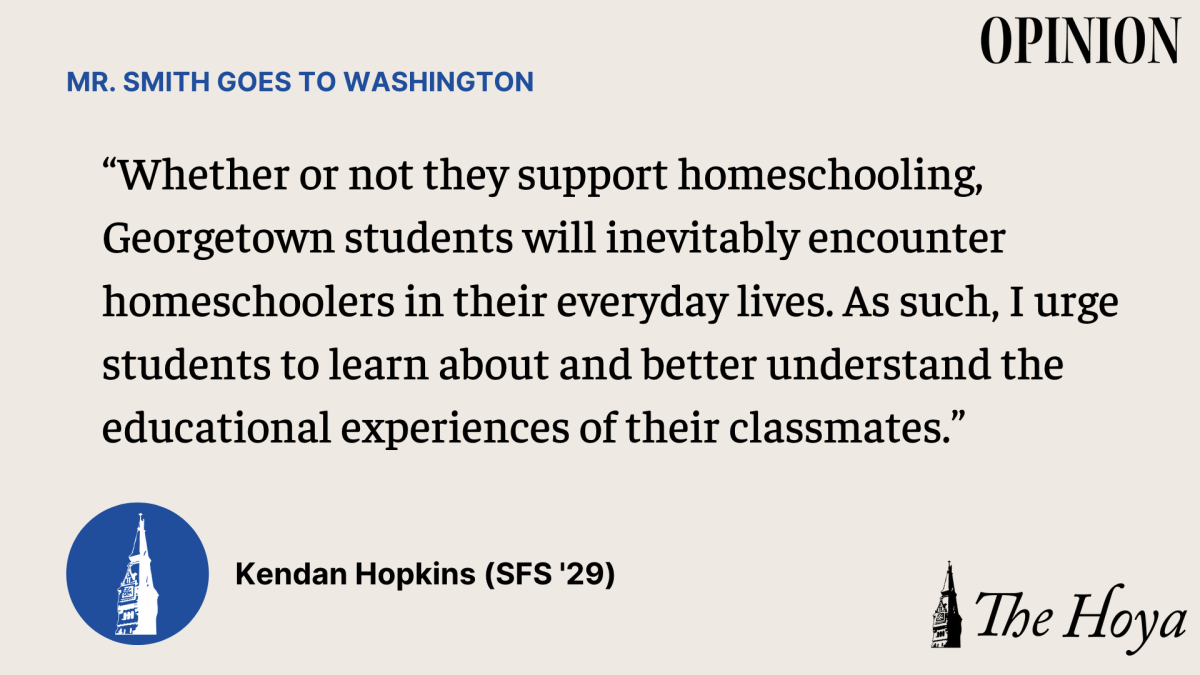
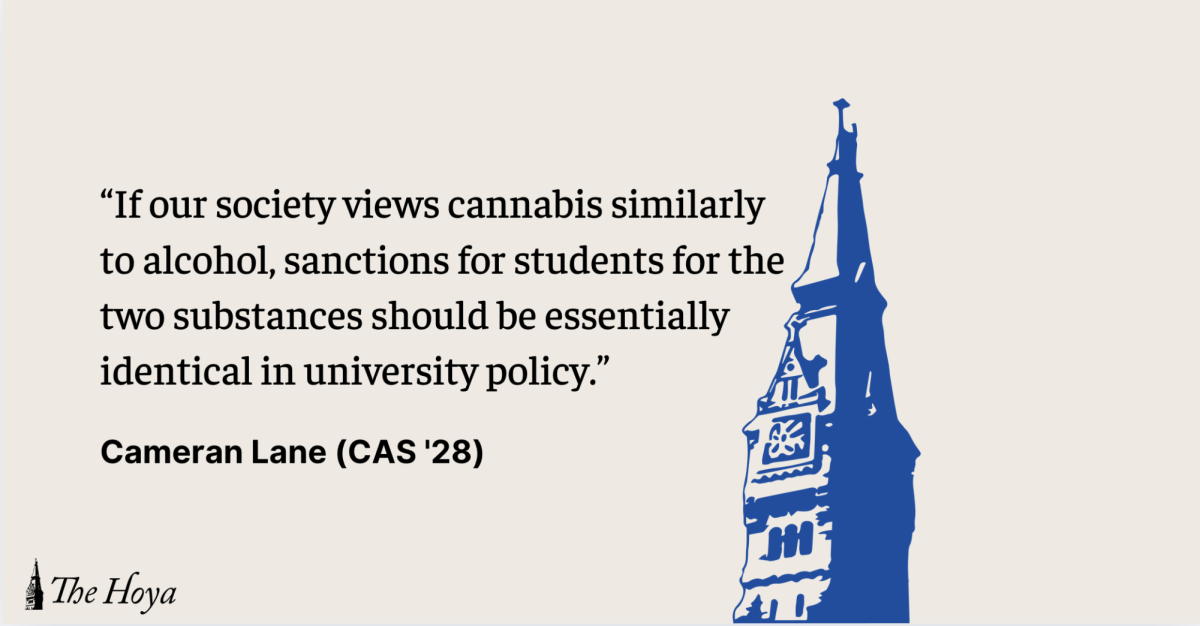
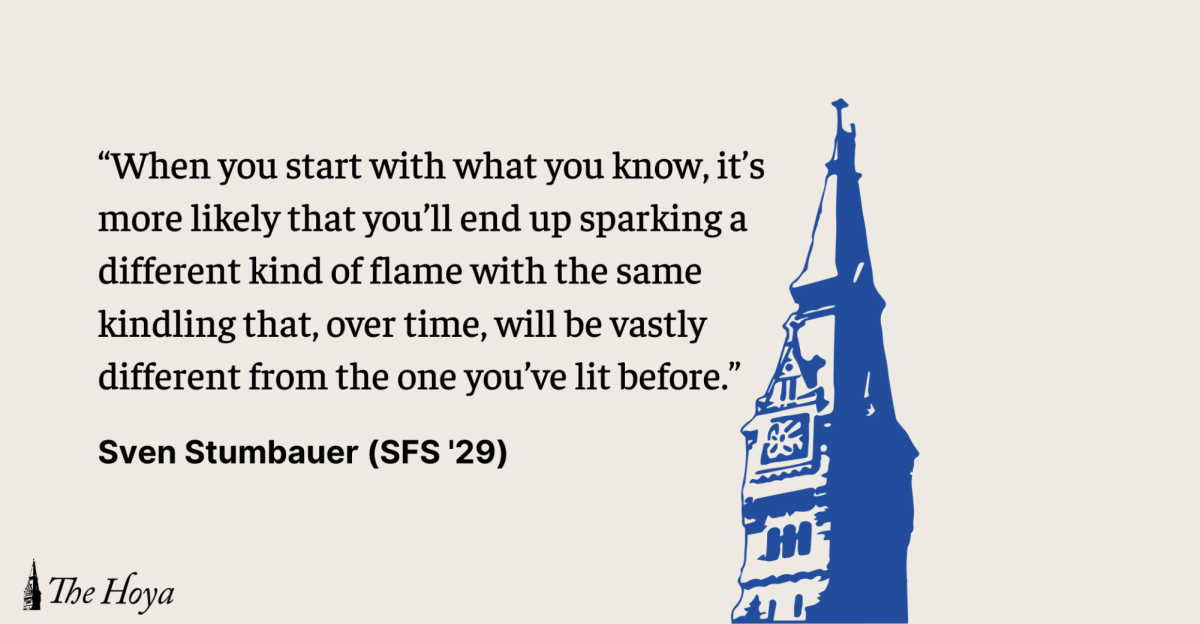
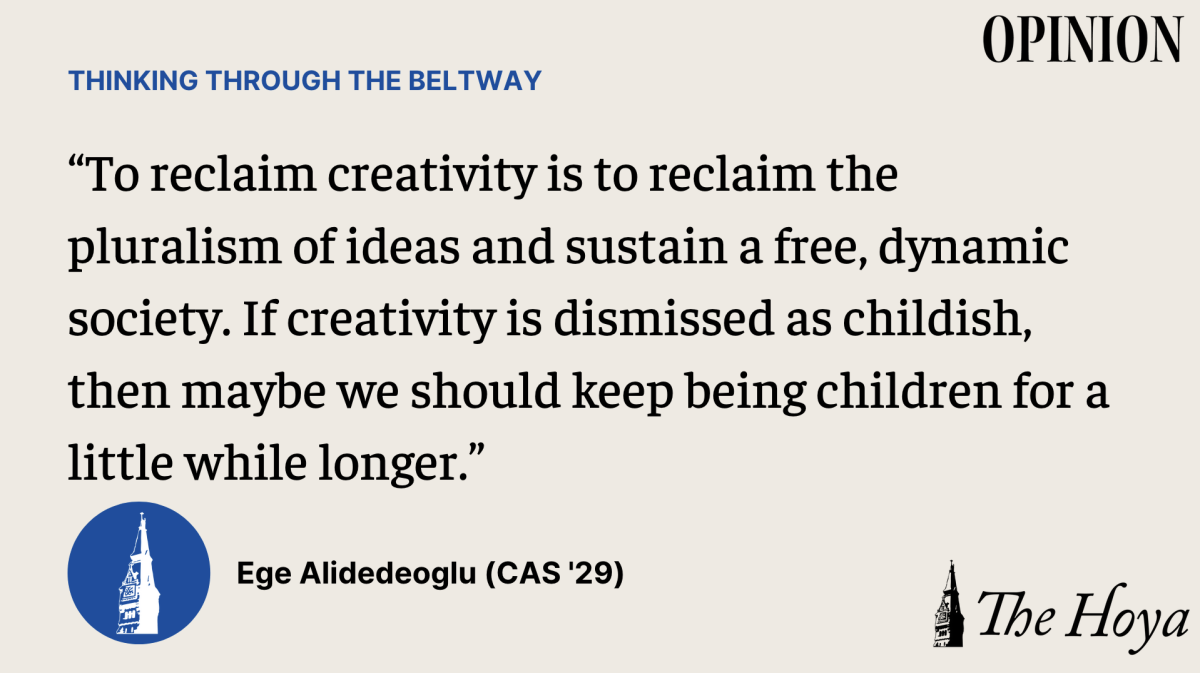
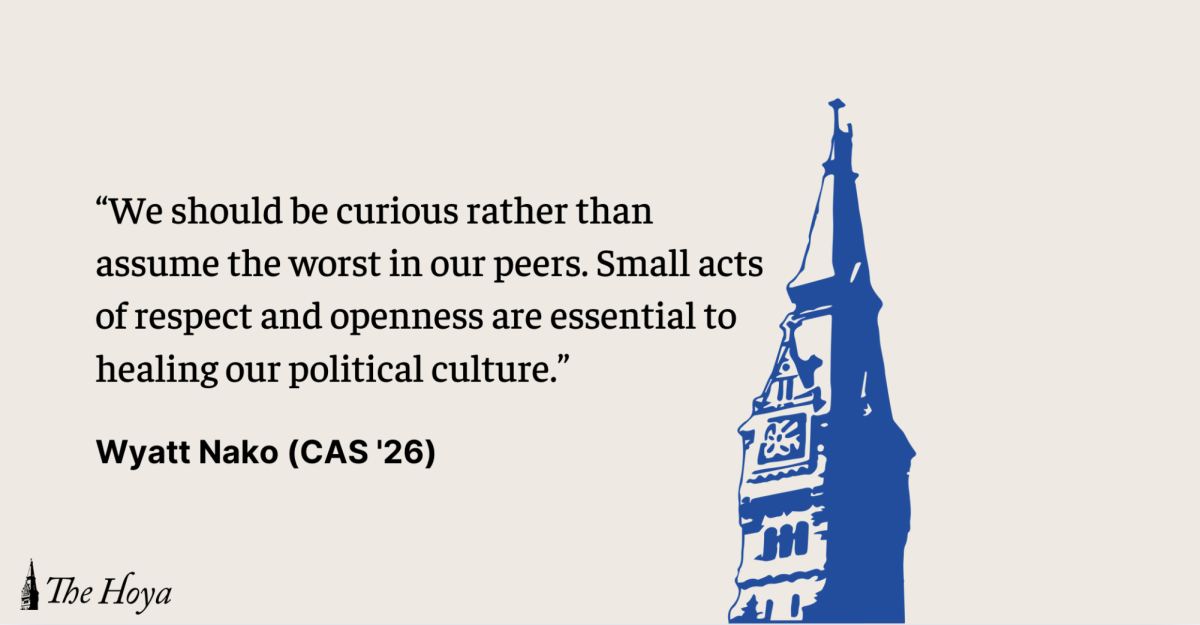
Joe Massaua SFS ‘25 • Sep 20, 2025 at 10:57 am
If you choose to get involved with student clubs, support the Philonomosian Society which is relatively new, 120+ members and 70 or so students weekly on Weds nights in MSB who meet to talk about big questions.
Also encourage faculty members to foster debate and dialogue in classrooms instead of lecture.
You’re doing great and keep it up—remember our storied history as a Jesuit University and most importantly our lived values. Saying this as a recent grad